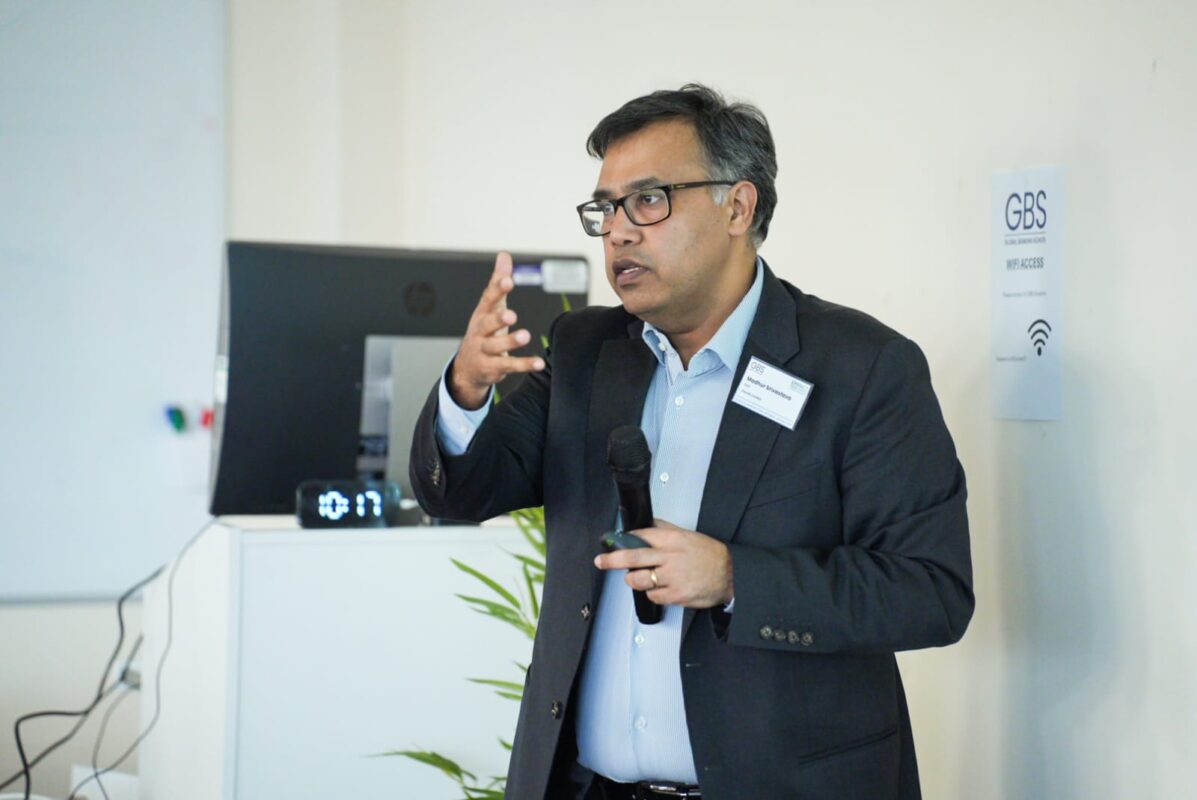Young people call for policy on limiting access to smartphones

BRITAIN’S YOUNG PEOPLE HAVE THEIR SAY ON OUR DIGITAL FUTURE: WE BELIEVE IN TECHNOLOGY AND ARE OPEN TO MONITORING AND RESTRICTIONS AS RISKS AND HARMS ARE GROWING
- Nominet Digital Futures report shows young people are optimistic yet prudent about the value technology brings to the world
- More than three-quarters of young people say technology has helped in all areas of their lives, but they recognise the negative impacts it can have in areas such as mental health, bullying, and fake news
- They have clear views on how to overcome some of the digital challenges we face, from strong appetite for digital passports for online activity and limiting access to smartphones in schools, to prioritising consistent reliable connectivity over ever-increasing speeds
Young people in the UK today overwhelmingly believe that technology is bringing value to their lives and the wider world, but their concerns over its negative impacts are growing, according to new research from Nominet, the profit with a purpose company operating at the heart of the internet infrastructure.
The Digital Futures research examined the conflict between the benefits that have been enabled by technology and the implications it has for personal relationships and wider society. For example, more than three quarters of young people (81% of 11-17 year-olds and 76% of 18-24 year-olds) say that technology such as the internet and mobile phones has helped them in all areas of their lives. Yet at the same time, the number of young people worrying about issues that range from cyber bullying and screen time to fake news and data privacy is growing.
Overall, young people think technology is a force for good
The youth of today are optimistic yet prudent about the value the internet brings to the world and its significance for our future. The findings reveal that 78% of 11-17 year-olds and 58% of 18-24 year-olds believe that technology has been good for them personally. The youngest age group surveyed have the most positive view, saying that technology helps them in all areas of their lives (81%) and that they expect it to create job opportunities for them (69%).
The 18-24 age group also expressed interesting perspectives on the role technology and the internet has on communication, learning and self-help. Again, the positive sentiment in these areas far outweighs negative opinions.
|
In which of these has technology played a positive/negative role |
18-24s |
|
|
|
Positive |
Negative |
|
Allowing people of all ages and backgrounds to communicate with each other |
77% |
15% |
|
Allowing people of all ages and backgrounds the ability to learn new things |
74% |
8% |
|
Giving me the facts so that I can make my own mind up |
44% |
13% |
|
Giving me access to self-help content more easily rather than speaking to a professional |
54% |
10% |
|
Opening our minds to other people’s point of view |
56% |
16% |
But they are not naïve to its challenges
However, despite young people valuing the opportunities that technology provides, they are aware of its shortcomings now and looking towards the future. Given that many young people will not be able to remember a time without the internet, they are arguably among the best qualified to judge its negative aspects.
The challenges they experience around people’s behaviour, cyber bullying, cyber security and the social and political division it can cause are particularly prevalent, and in many cases have grown in the two years since the previous Digital Futures research was last commissioned in 2017.
Some of the main worries include:
|
Behaviour and society |
|
|
|
18-24s |
|
Think technology has played a positive role in improving the nation’s manners |
7% |
|
Think technology is destroying the art of conversation |
58% (up from 54% in 2017) |
|
Worry that children will become loners due to screen addiction |
63% (up from 54% in 2017) |
|
Think people should be banned from using mobile phones in restaurants |
29% (up from 25% in 2017) |
|
Social and political division |
|
|
Think that social media is creating more social and political divides in society than not |
55%
|
|
Think social media is driving fake news |
74% (up from 67% in 2017) |
|
Believe that fake news changes how people vote |
78% (up from 70% in 2017) |
|
Worry that countries like Russia and China could hack key services in the UK |
53% (up from 37% in 2017) |
*Table shows percentage who agree or strongly agree
Worryingly, despite known issues, social media continues to be a cause for concern with bullying through social media prevalent for both 11-17 year olds and 18-24 year olds. Nearly seven in ten know someone who has been bullied through social media and, on average, one in ten has suffered anxiety or other mental health issues as a result of social media. Similar numbers also admit to being part of the problem, confirming they’ve been critical of others – someone they know – on social media.
|
Social media and cyber bullying |
||
| 11-17 | 18-24 | |
|
Have been bullied through social media |
19% |
30% |
|
Know someone who has been bullied through social media |
69% |
65% |
|
Feel under pressure to impress friends and followers online |
36% |
43% |
|
Have suffered anxiety or other mental health issues as a result of social media |
8% |
16% |
|
Have been critical of someone they don’t know on social media |
10% |
22% |
|
Cyber and privacy concerns |
|
|
|
Worry people will steal their personal information if they share too much online |
53% |
61% |
|
Think the government watches everything they do online |
44% |
50% |
*Table shows percentage who agree or strongly agree
They’re highly capable and willing to try new things
Despite the concerns, young people’s level of digital ability continues to expand. The number of 18-24 year-olds ranking tasks such as uploading a video clip, changing settings on a mobile phone, downloading an app, using an online map or paying for things with a mobile phone as ‘easy’ has grown across the board since 2017. 18-24 year-olds were more capable in all areas tested, while 11-17 year-olds were more capable than all adults in five out of eight categories, and the most confident overall at uploading video clips.
|
|
11-17s |
18-24s |
All adults (18+) |
|
Connecting to wi-fi |
88% |
89% |
84% |
|
Uploading a video clip |
80% |
77% |
66% |
|
Change the personal settings on a mobile phone |
83% |
88% |
76% |
|
Download an app |
89% |
90% |
83% |
|
Use an online map or sat nav to get to a new destination |
64% |
83% |
75% |
|
Set up a new mobile phone from the box |
56% |
64% |
56% |
|
Build a website from scratch |
10% |
13% |
7% |
|
Pay for things using a mobile phone |
51% |
82% |
58% |
*Table shows percentage who think it is easy
Young people also exhibit great willingness to adopt future technology innovations. For example, nearly half (47%) of 18-24 year-olds are excited about the potential benefits of AI and what it can bring to society. However, understandably there is some skepticism in both age groups around key technologies which are currently in development but not yet reached their full potential. Overall, the youngest respondents are seemingly the most willing to experiment with technology, with over a third (37%) interested in having a single digital passport with which to access all online services. Having a medical operation performed by a robot is however perhaps a step too far for many – though more expect to be willing to try that in five years’ time.
|
|
11-17s |
18-24s |
||
|
Overall willingness to do the following: |
Now |
In five years’ time |
Now |
In five years’ time |
|
Talk to a voice-activated machine to do a task |
61% |
64% |
36% |
40% |
|
Take deliveries via drones to a home address |
38% |
44% |
28% |
36% |
|
Have a digital passport in order to access any online service |
37% |
44% |
20% |
26% |
|
Ride in a driverless car |
26% |
32% |
21% |
29% |
|
Have a medical operation performed by a robot |
14% |
19% |
17% |
22% |
*Questions were scored from 0-10, where 10 is completely willing and 0 is completely unwilling, Table shows percentage who gave a score of 8, 9 or 10
But connectivity can let them down
Doing anything online relies not just on capability and willing, but the underlying infrastructure. Here, there is a mixed picture. Two fifths of 18-24 year-olds (41%) say their home internet connection is easily able to cope with their household’s needs, while one fifth (20%) rank their connection as either ‘a bit too slow’ or ‘way too slow’. The reliability of their home connection is also a cause of dissatisfaction, with almost nine in 10 (89%) 18-24s experiencing issues with broadband reliability in the past year, and 11% saying it happens ‘all the time’.
The implications from slow or unreliable connections vary. 17% of 18-24s say that they or a member of their family have missed out on social opportunities due to an unreliable connection, while 16% have missed out on school or work opportunities. Almost a quarter (23%) of 18-24s say that there are online services that they would like to use but can’t due to an unreliable or slow connection.
Overcoming challenges for a vibrant digital future
Despite the difficulties young people are experiencing due to the internet and social media, this age group have strong views on how things can be improved.
For example, more than half (56%) of 18-24 year-olds believe that social media and messaging apps negatively affect children. Rather than just accept the current status quo, the majority want action to be taken to alleviate the harm from social media. Specifically, six in 10 (60%) think there should be a national policy on limiting access to smartphones and social media in schools, and 68% think that lessons on how to use social media appropriately and behave online should be included in the national curriculum. This follows recent Government announcements confirming that compulsory health education lessons will be introduced next year, which will include guidance for children on online safety and navigating the internet.
On connectivity issues, the majority of young people agree that consistency is most important. 51% of 18-24s say that they would rather have a consistently reliable connection than a faster one, while 54% agree that the industry should focus on delivering consistent coverage geographically rather than faster speeds in limited areas of the country.
They also have views on aspects of emerging technology – from believing that any technology that makes decisions in place of humans should be designed in an ethical and responsible way (30%) to agreeing that it should be illegal to fly a drone in the UK that has not been registered with a central body.
Commenting on the research, Russell Haworth, CEO, Nominet said: “The level of maturity, confidence and optimism for the future of the internet shown by young people is encouraging. By first acknowledging there are issues, and understanding that we need to make behavioural and legislative changes, young Brits are realistic in their vision for the future. And we should listen to them – after all, they are the future business owners and leaders the UK will rely on. Their willingness for technology innovation and drive to stamp out issues of online bullying, anxiety, cyber crime and negative online conduct should be the catalyst and motivation we need to build a safer and more secure digital future.”
Nominet’s Digital Futures research seeks to encourage debate on what matters most, as we chart a course towards a vibrant digital future in the UK. Nominet’s position as the company behind the .UK internet infrastructure means it can offer a unique perspective on the digital progress of the UK.
About the research: Nominet commissioned PDS (Populus Data Solutions) to survey a sample of 2,080 UK adults including 505 aged 18-24 and 1,032 UK children aged 11-17 to encourage debate on what matters most as we shape our digital future in the UK.
The research was conducted online between 30th January and 6th of February 2019 and addressed several key themes including the impact of technology, digital ability and willingness, digital & society, social media and inclusivity & the workplace.











Responses